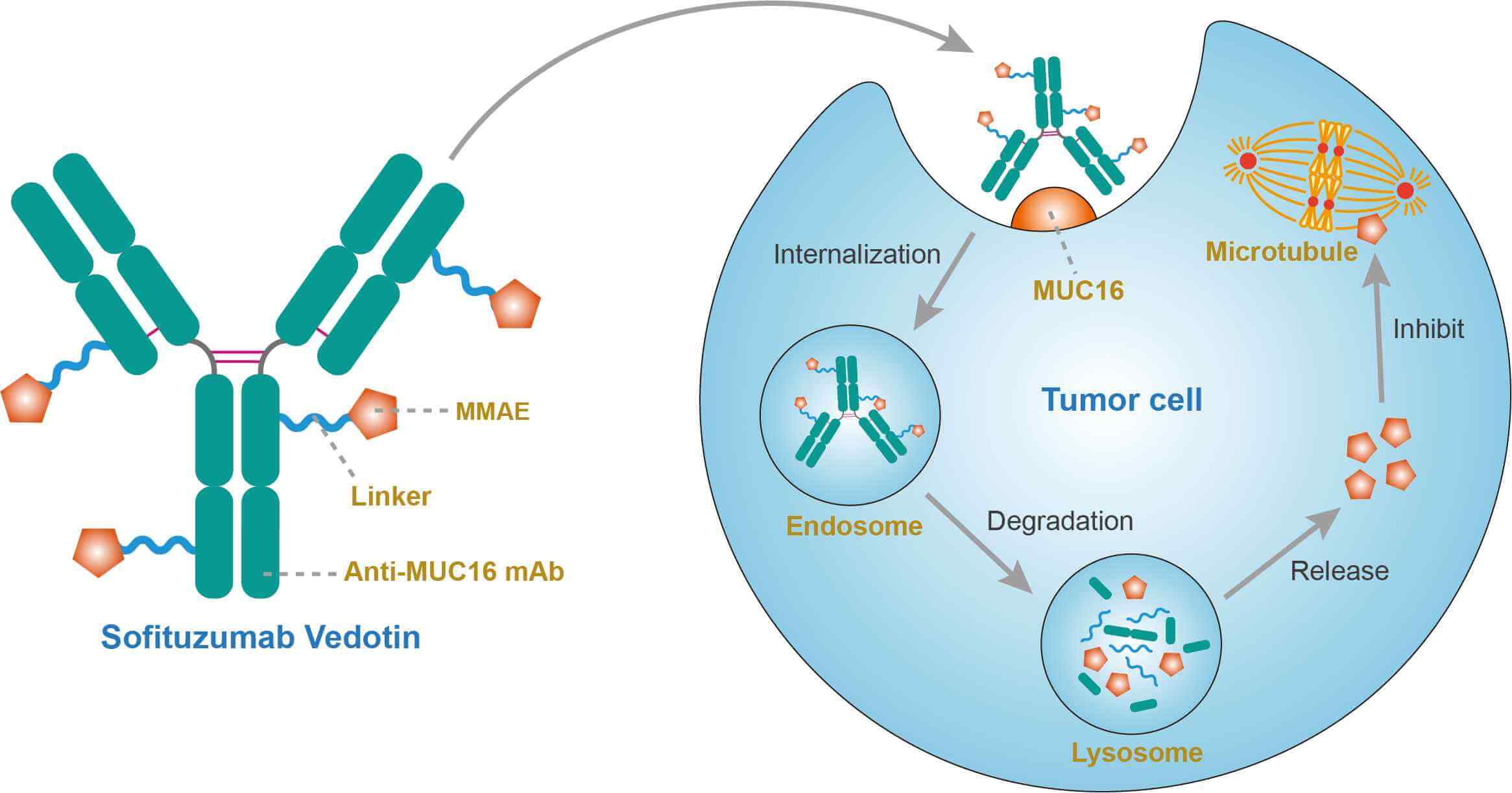Sofituzumab Vedotin Overview
Introduction of Sofituzumab Vedotin
Sofituzumab Vedotin (also known as DMUC5754A and RG-7458) is an antibody-drug conjugate (ADC) that contains the humanized IgG1 anti-MUC16 monoclonal antibody (mAb) and a potent anti-mitotic agent, monomethyl auristatin E (MMAE), linked through a protease-labile linker, maleimidocaproyl-valine-citrulline-p-aminobenzyloxycarbonyl. DMUC5754A binds to the MUC16 extracellular domain with high affinity, and shows potent and selective anti-tumor activity in MUC16-expressing human ovarian cancer (OC) and pancreatic cancer (PC) mouse xenograft models. The targeted therapeutic strategy of DMUC5754A resulted in enhanced tumor-specific activity of MMAE, while minimizing exposure to tissues that do not express MUC16.
Mechanism of Action of Sofituzumab Vedotin
MUC16 (previously known as CA125) has been extensively used as a biomarker for ovarian cancer, and its expression has been associated with disease progression. Key advances have revealed the structure and functions of this protein and the role it plays in fundamental processes, including protection of the epithelium and human carcinogenesis. The expression of mucins in resting, normal polarized cells is intricately controlled, with expression restricted on the apical membranes of exposed epithelia. Following loss of cell polarity during carcinogenesis, mucins are expressed all over the cell surface, and become available to interact with several growth factor receptors, that are typically restricted to the basolateral surface, and modulate their downstream signaling in various cancers. Aberrant overexpression of MUC16 has been observed in several human malignancies, including ovarian, pancreatic, breast, and lung. Due to their aberrant overexpression and functional involvement, MUC16 and its ligands have emerged as potential targets for therapeutic intervention using monoclonal antibodies and immunotherapy.
As an ADC, sofituzumab vedotin consists of a human anti-nectin-4 antibody conjugated to the anti-mitotic agent MMAE, it binds to MUC16 on the surface of cancer cells, followed by internalization of the conjugate by endocytosis and release of its cytotoxic payload MMAE after lysosomal degradation. MMAE is a synthetic antineoplastic agent. Because of its toxicity, it cannot be used as a drug itself; instead, it is usually linked to a mAb which directs it to the cancer cells. MMAE disrupts microtubules and induces apoptosis of the tumor cell. In addition to the direct cytotoxic effect of MMAE at the cellular level, the antitumor effect of sofituzumab vedotin may be mediated through additional mechanisms involving signal transduction inhibition from direct binding, antibody-dependent cellular cytotoxicity (ADCC) and complement-dependent cytotoxicity (CDC).
 Fig.1 Mechanism of Action of Sofituzumab Vedotin
Fig.1 Mechanism of Action of Sofituzumab Vedotin
For research use only. Not intended for any clinical use.
This site is protected by reCAPTCHA and the Google Privacy Policy and Terms of Service apply.



